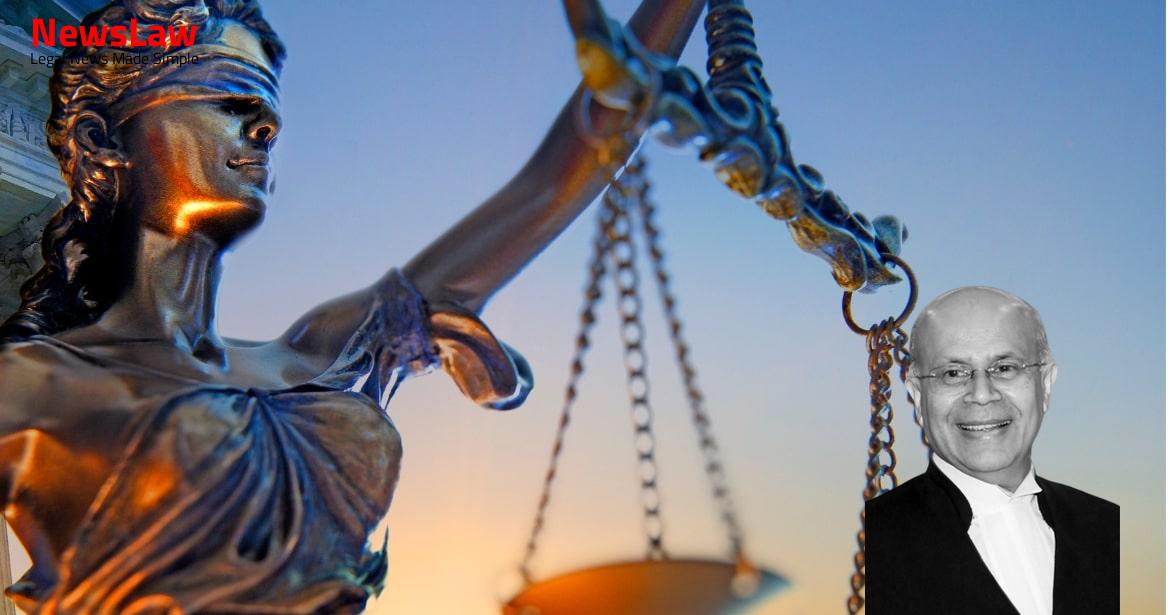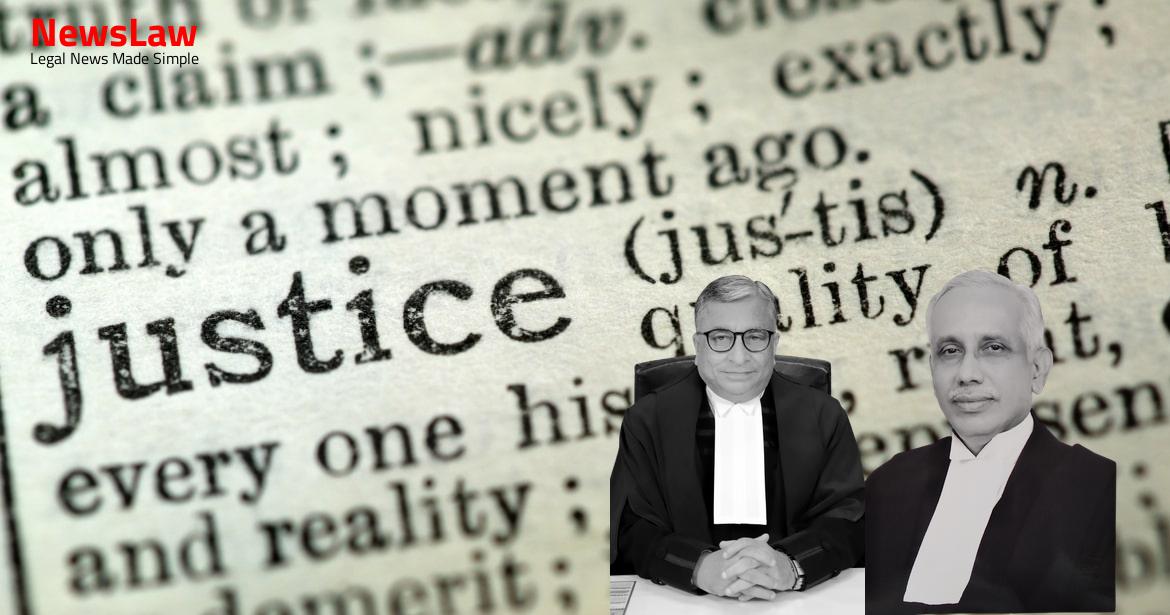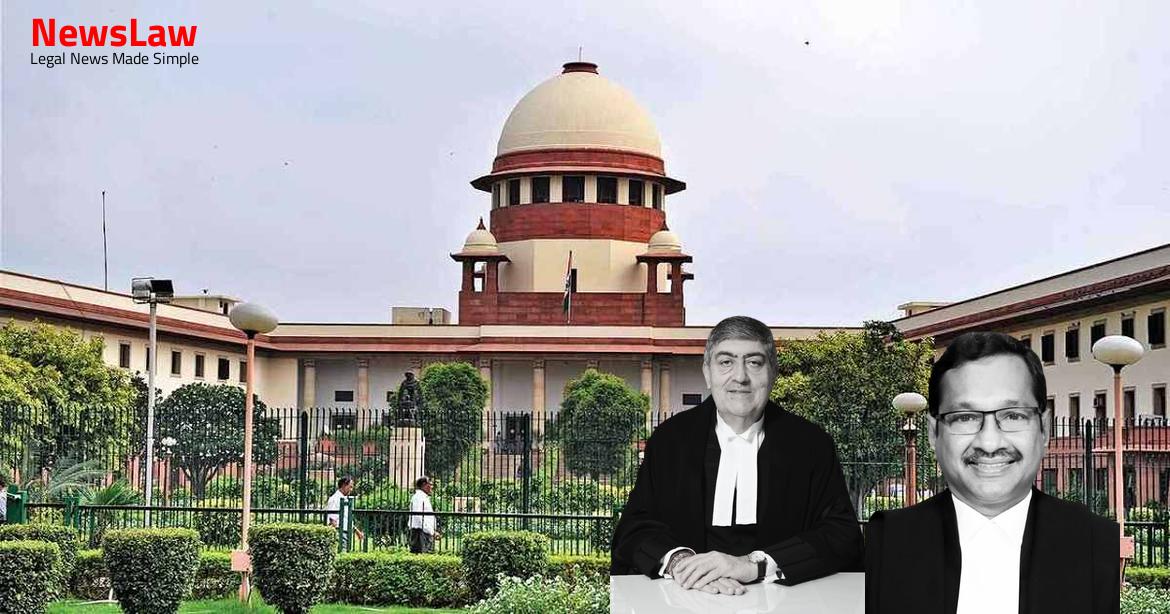Explore the detailed legal analysis by the court regarding the verification of caste certificates in a recent case. The court’s decision delves into the interpretation of rules, documents, and the application of law, shedding light on the complexities of caste certificate verification in the context of migration and eligibility for elected positions.
Facts
- The Committee declined to verify the caste certificate of the appellant under the proviso to Rule 14 of the Maharashtra Caste Certificate Rules, 2012.
- As a result, the appellant was retrospectively disqualified from holding the post of President of the Municipal Council, Kundalwadi, under Section 9A of the Maharashtra Municipal Councils, Nagar Panchayats and Industrial Townships Act, 1965.
- The order of the District Caste Verification Committee dated 22.10.2018 was the basis for this disqualification.
- The appellant challenged the dismissal of her writ petition and review petition by the High Court.
- The decision erroneously stated that the appellant could not contest the elections with a certificate from Hyderabad without a fresh Caste Certificate from Maharashtra.
- It was pointed out that ‘Munnur Kapu’ was classified as an ‘Other Backward Caste’ in Maharashtra as well on 07.12.1994.
- The Appellate Court left the verification of her caste certificate to the Committee, which did not verify it as being issued by the authorities in Hyderabad.
- It was argued that the appellant should have applied for a fresh certificate under the Rules.
Also Read: Promotion Dispute: Seniority-cum-Merit Principle
Arguments
- Appellant obtained the requisite caste certificate in Form 10 under Rule 6(1)(a) from competent authority in Maharashtra before filing nomination.
- Appellate Court upheld validity of caste certificate and left verification to Committee.
- Committee upheld validity of caste certificate but erred in not verifying it under proviso to Rule 14 due to appellant being a migrant from another state.
- Appellant failed to submit verification within stipulated time, declared disqualified retrospectively under the Act.
- Appellant’s nomination acceptance was unsuccessfully challenged on the ground of invalid caste certificate, which was issued by Maharashtra authority under Rule 6(1)(a) in Form 10 and upheld by Appellate Court and Committee.
- The retrospective disqualification of the appellant was upheld
- The appellant failed to submit her verified caste certificate within the stipulated time
Also Read: Enhanced Compensation for Loss of Estate in Motor Accident Case
Analysis
- The Committee’s decision reflects confusion and misunderstanding of facts.
- The appellant’s caste certificate under Rule 6(1)(a) was found valid by the appellate authority and the Committee.
- The High Court incorrectly concluded the appellant’s ineligibility based on Rule 6(1)(c) without proper assessment.
- The appellant, born in Hyderabad, held a valid caste certificate from Maharashtra but faced rejection by the Committee.
- The High Court erred by not recognizing the appellant’s valid caste certificate issued in Maharashtra under Rule 6(1)(a).
- The appellant, elected in December 2016, was required to submit a verified caste certificate within one year per Section 9(A) of the Act.
- Both the Committee and the High Court reached erroneous conclusions by misinterpreting the applicable rules and documents.
- The appellant migrated to Maharashtra from another State before the deemed date of 13.10.1967.
- The caste ‘Munnur Kapu’ was not recognized as an Other Backward Caste in Maharashtra at the time of migration.
- The appellant obtained a caste certificate in Form 10 from the Sub-Divisional Officer, Biloli, Maharashtra to contest an election.
- Rule 6 allows for the issuance of caste certificates to migrated persons from other States based on their original caste certificates.
- If deemed necessary, a detailed inquiry can be conducted before issuing a caste certificate to a migrated person.
- Caste certificate holders who migrated to Maharashtra for education or employment from their state of origin are entitled to benefits from their origin state and the Union Government, but not from Maharashtra.
- The court has determined that the appellant should not be reinstated in this case.
- The High Court’s order is deemed unsustainable.
- The nature of relief to be granted to the appellant needs to be considered.
Decision
- The High Court’s order is set aside and the appeals are allowed.
- Respondent no.4 assumed the position of President after the appellant’s disqualification.
- Relief is to be prospective in nature, regarding appellant’s caste status as ‘Munnur Kapu’ from 22.11.2016.
- Appellant’s elected tenure ends in December 2021.
Case Title: ARUNA Vs. THE STATE OF MAHARASHTRA (2021 INSC 362)
Case Number: C.A. No.-004457-004458 / 2021



